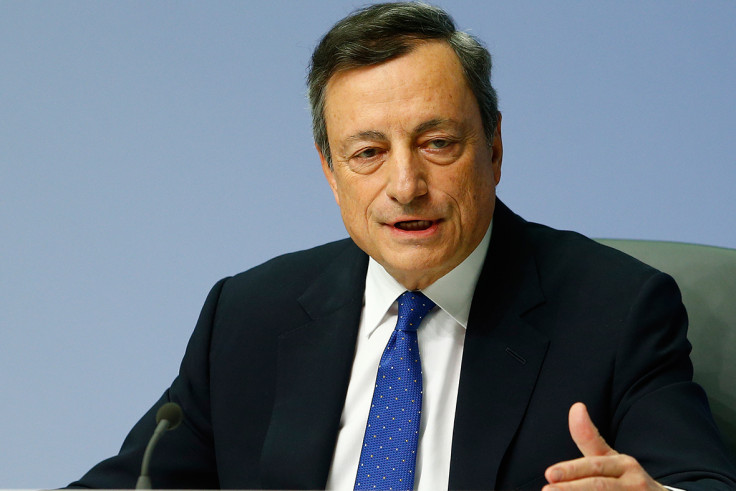FX Focus: Euro tanks after ECB keeps interest rates unchanged yet again
Dollar gains ground as investors shrug off disappointment over Donald Trump's tax reforms.

The euro slumped on Thursday (27 April), after the European Central Bank kept its benchmark interest rate on hold at zero for yet another month.
While the decision was in line with market expectations, it did not do any favours to the common currency, which tumbled 0.46% and 0.80% against the dollar and the pound respectively, to trade at $1.0854 and 0.8423p.
"The major headline for the euro bulls from the ECB is that the downside risk have diminished. Of course, the bank is thinking a positive outcome of the French elections," said Naeem Aslam, chief market analyst at Think Markets UK.
"However, they have mentioned that it would be December before they would consider their zombie move-taper quantitative easing (QE)."
The ECB also said it had decided not to change its bond-buying stimulus scheme, currently on course towards being cut to €60bn (£50.6bn) down from €80bn.
"Macroeconomics have trumped Macron," said Richard Berry, from Berry FX. "After three days of walking on air, the euro has been brought back down to earth by the ECB's reality check. "
Following the interest rate decision, ECB president Mario Draghi said that since the central bank's governing council's meeting in March the cyclical recovery of the eurozone "is becoming increasingly solid and downside risks have further diminished".
Ranko Berich, head of market analysis at Monex Europe added the ECB was unlikely to bring down the curtains on the monetary easing policy anytime soon.
"Even though macro growth has improved and certain governing council members are more 'sanguine' about economic risks, the inflation outlook has not improved sufficiently for the ECB to formally consider an end to QE," he explained.
"Barring a wholesale change in opinion among the governing council against Draghi's position, ECB QE is here to stay for now."
In Britain, meanwhile, the pound matched its advance against the euro by gaining on the dollar, as it rose 0.32% against the greenback to trade at $1.2887. In the absence of any meaningful data and with the rally sparked by last week's announcement of a snap general election in June petering out, investors will focus on the Britain's first quarter GDP report, due out tomorrow.
Elsewhere, the dollar was on the front foot against its main rivals, even though Donald Trump's much-anticipated tax plans left investors unimpressed.
The greenback was 0.30% and 0.15% higher against the yen and the Swiss franc respectively, trading at ¥111.39 and CHF0.9948. The dollar also gained against its Canadian and Australian counterparts, rising 0.18% and 0.51% respectively, to fetch CAD$1.3641 and AUD$1.3435.
Treasury Secretary Steven Mnuchin said on Wednesday (26 April) the White House would launch "the biggest tax cut in American history" in a move that including slashing slashing corporate taxes to 15% from 39.5%.
"Trump's heavily anticipated big tax announcement failed to provide the clarity investors sought," said FXTM research analyst Lukman Otunuga.
"Many queries over the tax reveal still remain unanswered, with the potential increase in the budget deficit compounding uncertainties. The possibility that Trump's suggested tax reforms will suffer a similar fate as that of his failed healthcare reform proposal may put an end to the Trump rally, with dollar finding itself under renewed selling pressure."
© Copyright IBTimes 2024. All rights reserved.







